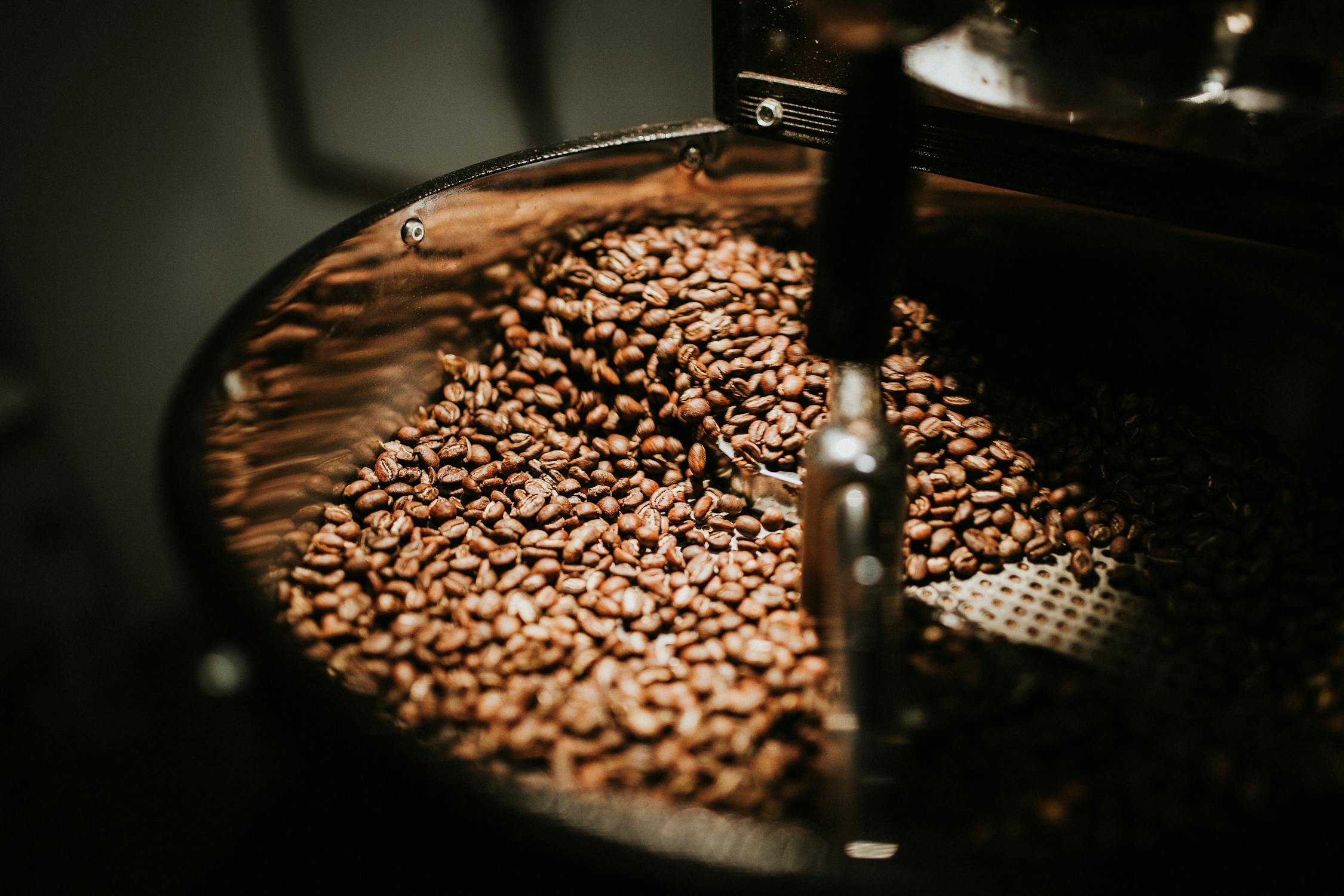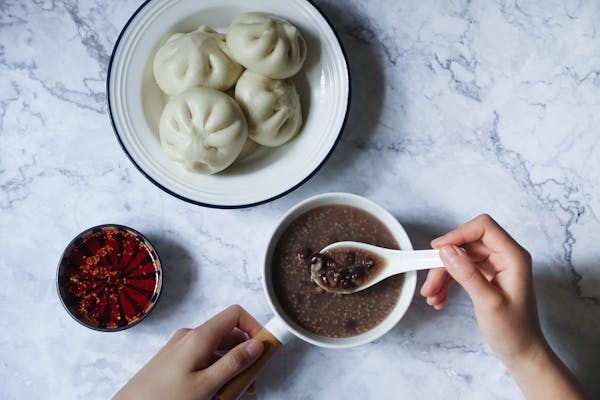[ad_1]
Dakarai Singletary couldn’t slumber Saturday evening, right after the capturing at Tops Pleasant Markets, a grocery retailer up the street from his home in Buffalo, New York. The capturing, allegedly carried out by an 18-yr-aged white man, still left 10 lifeless and three injured. Eleven of the victims ended up Black.
The grocery store is now temporarily closed soon after the taking pictures, leaving Singletary’s community with even significantly less accessibility to fresh new meals. That kept him awake that evening, scheduling what to do.
“I read through the information day to day, and when I see mass shootings I generally pray,” Singletary, 27, reported. “But when it’s in your neighborhood and I’d hop on Instagram and see that it was any person that I know who was impacted, it hits tougher.”
Buffalo’s Masten Park is just one of the quite a few Black neighborhoods throughout the state that has minimal obtain to grocery shops providing fresh goods at an reasonably priced price. Now that the grocery store, which opened in 2003, has briefly closed in the shooting’s aftermath, it poses new challenges for people — quite a few of whom walk or count on general public transportation and who now need to locate alternate meals outlets that are farther away and extra hard to entry.
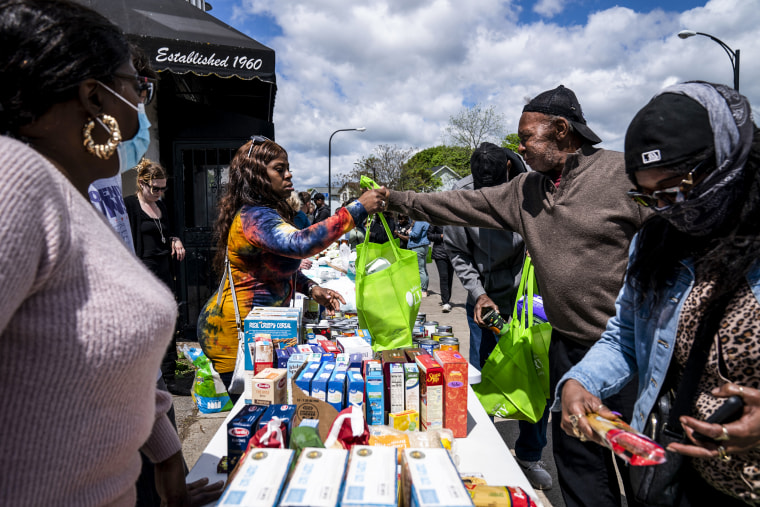
Tops was the only available grocery store on the east side of Main Road, wherever a lot more than 80 % of the citizens are Black and the median residence income is considerably less than $20,000.
Singletary mentioned that numerous of the inhabitants rely on corner outlets that do not offer healthful foodstuff.
“It’s new Checkers, new McDonald’s, new Taco Bells — all that,” he said. “But no smoothie stores, no contemporary fruits … no grocery suppliers.”
Following the capturing, Singletary developed the “Free Refreshing Produce” initiative, which connects with community farms to present inhabitants with contemporary produce at 4 stands during the area. The firm is also collecting donations for the family members of the cherished kinds killed in the capturing, which will fund vacation preparations and funeral expenses. So far they’ve lifted additional than $6,000.
Singletary is also delivering groceries to the residences of citizens, many whom are seniors and traumatized by the taking pictures, to guarantee they get high-quality, nutritious meals.
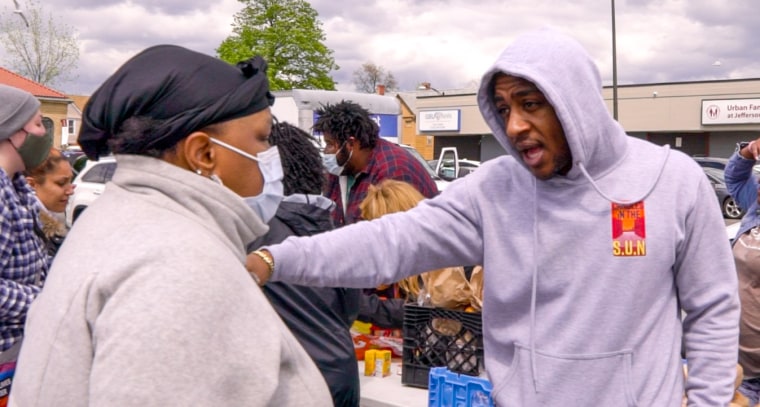
He also stated that the closing of Tops would have a ripple result on his neighborhood.
“That’s why I’m placing up initiatives to where we can be energetic — not just for this week undertaking this, but we’re heading to be undertaking this regularly since a whole lot of belief has to be crafted again up just before we can even attempt to think that this store can be as practical as it after was,” he stated.
Singletary, who returned to the spot in 2019 after graduating from college, claimed he has a shut relationship with numerous Black residents in Buffalo, since his nonprofit Candles in the S.U.N. (“Save Ur Neighborhood)” delivers sources and mentorship to the community. His latest initiative is section of the organization’s endeavours to help the majority Black neighborhood get access to wholesome meals. In November 2021, the organization dispersed much more than 2,500 meals to family members on Thanksgiving Working day.
Singletary said that his city, along with other segregated spots across the place, is labeled “The Mississippi of the North” simply because of its heritage of racist redlining and restrictive covenants that prevented Black homeownership and led to segregated neighborhoods. In accordance to a 2018 report by the Partnership for the Public Superior, Buffalo’s Black citizens are six situations more most likely than white citizens to reside in a local community that does not have a grocery keep. The report also identified that in the Buffalo-Niagara area, only 10 % of Black people are living in regions with prospect, which incorporates obtain to healthier food, as opposed to extra than 60 percent of white individuals who have this sort of obtain.
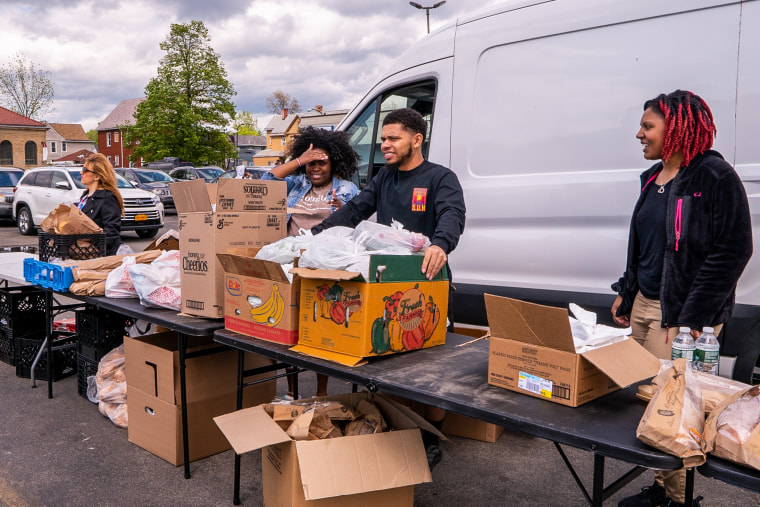
Kathy Sautter, a general public and media relations supervisor for Tops Helpful Marketplaces, said in a assertion to NBC News that the store will supply absolutely free shuttle buses for residents to local grocery retailers and pharmacies and is performing with local community leaders to provide free meals and supplies.
Lyft is also offering free rides to the grocery keep for the neighborhood’s people. Even though lots of are stepping in to aid, Singeltary mentioned some inhabitants are fearful to leave their houses.
“PTSD is true,” he explained. “If I’m an more mature Black resident in Buffalo, New York, I do not feel comfortable likely to a further grocery retail outlet correct now.”
Angela Odoms-Younger, an associate professor of dietary sciences at Cornell’s Higher education of Human Ecology, explained that the taking pictures in Buffalo demonstrates the intersections of structural and bodily violence. In addition to the loss of life and ongoing trauma, she explained the taking pictures creates far more hardship for people, these types of as the reduction of work opportunities with the closing of the retailer.
“The work that Tops provided are not there, and then who wishes to go do the job in a put wherever you’ve been at the site of white racialized trauma?” Odoms-Young stated.
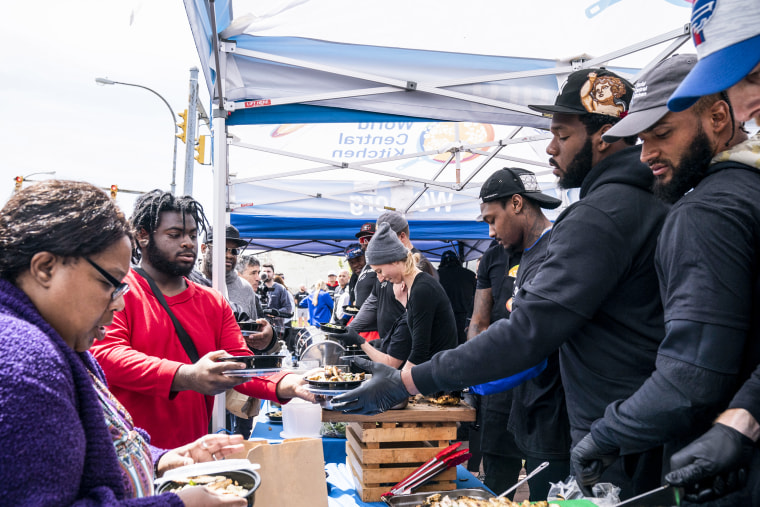
“This discussion is happening all above the country — when just one retailer closes, then all of a sudden folks are remaining once more with out just about anything,” Odoms-Young stated, “and that is the trouble. We require a full ecosystem in Black communities that is assorted plenty of to endure a person retail store closing.”
Lots of food industries really do not devote in Black, small-profits neighborhoods mainly because of the notion that they can make more earnings elsewhere, stated Henry Taylor, a professor of urban and regional arranging at the College of Buffalo. And considering the fact that grocery retailers are not commonly seen as crucial local community institutions, they are typically ignored when it arrives to government expense.
Taylor said it took several years to get a Tops marketplace crafted in the Masten Park neighborhood, and quite a few even now complained that extra grocery suppliers were being required. He also reported if the Tops grocery store does not reopen, it would have a devastating impression on Black inhabitants who would have to depart their neighborhoods to receive fresh make — which is tricky for the 40 p.c of inhabitants who do not have cars and trucks.
Though the expression “food desert” is commonly used to describe these places, Taylor mentioned “food apartheid” would be more precise.
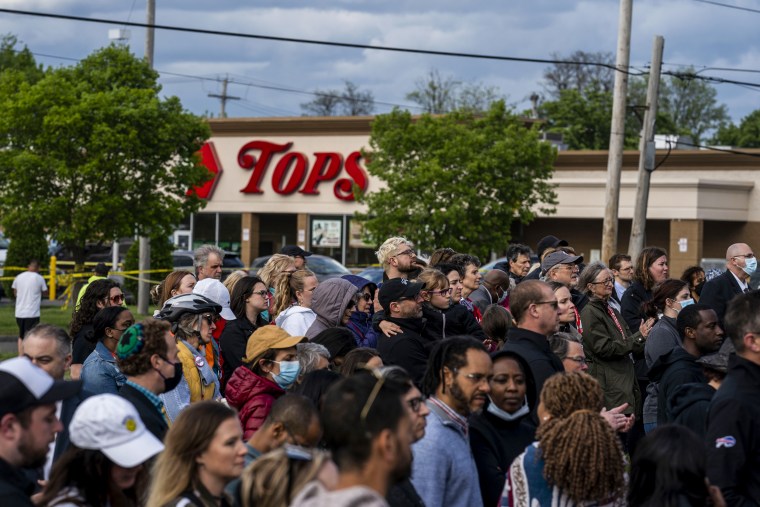
“Desert implies a variety of purely natural phenomena — some thing that just sort of transpires as element of the ecology of a social method,” Taylor said. “Food apartheid instead attracts that again to the types of guidelines pursued in many destinations in this place, that makes a condition in which African American individuals and very low-money folks of coloration are separated from places in which they can accessibility meals.”
In order to remedy foods insecurity in Black neighborhoods like Masten Park, Taylor said the metropolis desires to perform with Black customers of the neighborhood and companies to develop cooperative supermarkets. He also claimed that tackling the concern of soaring rents is just as very important.
In Buffalo, Taylor reported that close to 70 per cent of Black individuals are renters, and they are living in housing that is substandard. Black renters also devote 40 to 60 percent of their revenue on lease, he additional, money that “robs them of disposable means that they can extend on other kinds of commodities.”
Henry also reported producing types of urban agriculture is one more option, some thing that Singletary has advocated for, perfectly right before the shooting. Though several in his local community are nonetheless frightened, Singletary reported that there’s also a lot of persons who aren’t scared and are stepping in to assist.
“I’m not waiting to see what is done from many others,” Singletary explained. “I’m a Black guy that was affected by this. My community was influenced by this. … I’m not waiting for any individual else to provide about improve.”
[ad_2]
Source backlink

